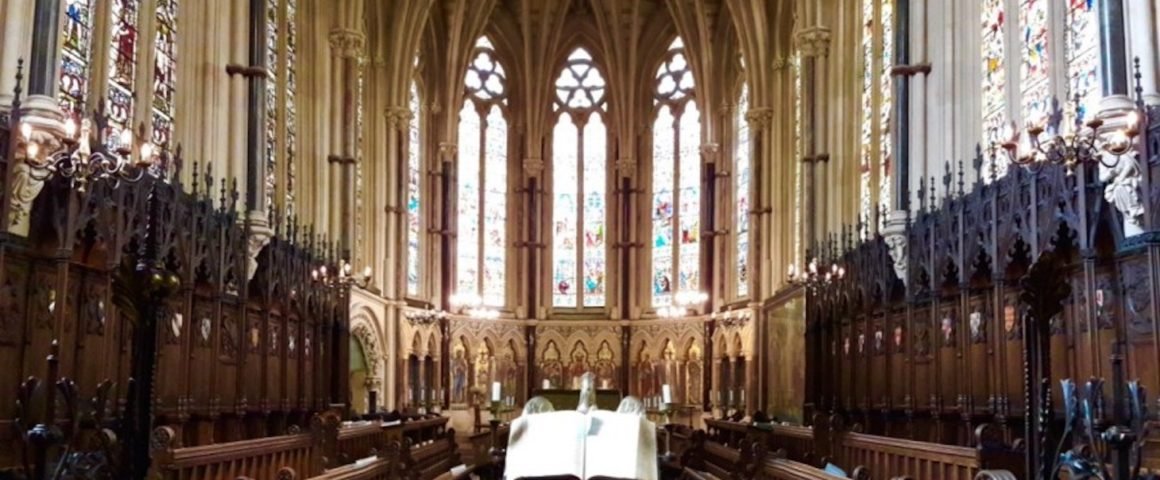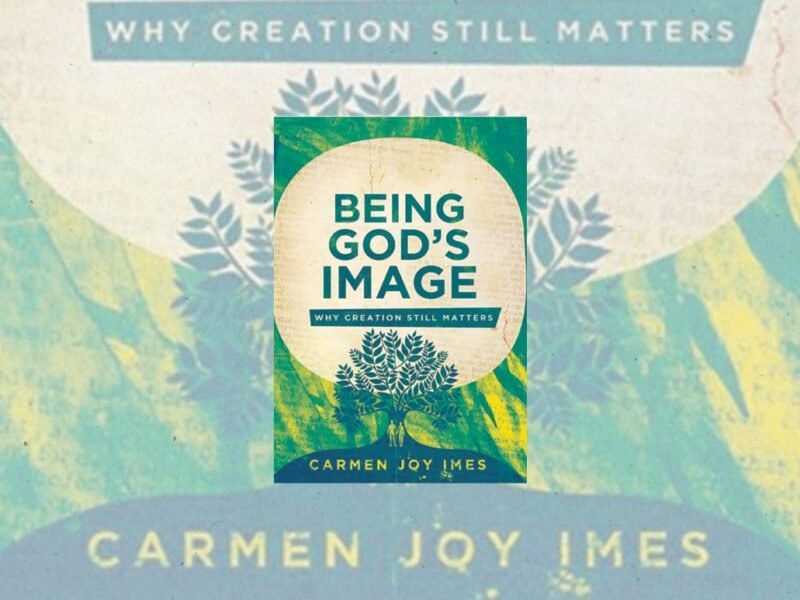For as the rain and the snow come down from heaven, and return not thither but water the earth, making it bring forth and sprout, giving seed to the sower and bread to the eater, so shall my word be that goes forth from my mouth; it shall not return to me empty, but it shall accomplish that which I purpose, and prosper in the thing for which I sent it.
Is. 55:10-11
One of the particular glories of the Anglican expression of Christian worship is its emphasis on the centrality of Holy Scripture in the life of the Church. That is not to say that other traditions within the Church disregard the Scriptures, rather it is simply to point out the particular pride of place which the inscripturated word holds within historic Anglicanism. For those viewing the Canterbury Trail from afar this distinctive may not seem immediately obvious. Many feel that the presence of a “Prayer Book” necessarily displaces the Bible as the Book. I suggest that the converse is actually the case.
The Prayer Book is first and foremost a servant of the Word for the servants of the Word. The Book of Common Prayer takes the words of Holy Writ and fashions them into the language of prayer for the people—a common faith expressed in a common tongue. The Prayer Book goes to great pains to take worshipers through the whole Bible on a regular basis. The genius which grounds the flow of the BCP is a commitment to the “whole counsel of God.” Cranmer, Hooker, and other leading lights believed that it took the whole counsel to form a whole Christian. Thus to follow the rhythms of the daily office, and to participate in its services, is to enter into what Ephraim Radner calls the “allness” of Holy Scripture. By ordering our worship by the simple liturgy of the Book of Common prayer all that we are, all that we have, all that we experience, all of life becomes wholly saturated by all of Scripture—lex orandi, lex credendi, lex vivendi.
Nothing is hidden from the sight of the Invisible One made present to us in the “Book of God.” We are left wide open, bare, and exposed by the Naked Word—the Unadorned Textus Sanctus. Yet, astonishingly, the Word approaches us in our lewdness; garbed in naught but the effulgence of Eternal Light—naked and unashamed.
It is this “bare” Word that is celebrated in the Prayer Book tradition; that Word that is effectual in itself being the very Living Breath of the Ever-Speaking God. It is for this reason that Richard Hooker viewed the public readings from the unclad text to be the true kerygma. Other sermons may be preached but if the Scriptures have been read and sung and prayed then God has indeed spoken. So the Anglican tradition doesn’t diminish the inherent power of the Word; it extols it. To suggest that commentary must be made on any given text from the Sacred Library in order for it to be effective is to divest the Oracles of God of their ancient power and to attribute too much potency to the mortal creature of blood and bone whose breath is in its nostrils.
When we gather around the Book our hearts are laid bare. Through the Law and the Testimony we are stripped down by Verbum Dei; searched out by Vox Dei. We are placed upon the high altar to present our bodies as living sacrifices—our God is a consuming fire. Through Holy Scripture we are brought into the august presence of that Holy Fire. It is only of the Lord’s mercies that we are not consumed.
Mercifully, the Spirit of Burning comes to deliver rather than to destroy. By laying hold upon the Naked Word we grasp the hem of Him whose train fills the heavens. He spreads His skirts over us cover our shame; we are robed with the glorious garments of the gospel—beauty for ashes. By virtue of the sacred page the Word comes riding on seraphic wings; touching our lips, touching our lives. Dross is consumed; gold is refined. The Fiery Pillar rests upon our heads; the Wind fills the house, the temple built of living stones shakes at His voice. There is left to us no corner of existence untouched by the Holiness of the Word; no stone left unturned which would bar the way to Resurrection, no barren valley of bleached bones upon which the Almighty does not breathe. “Now hear the Word of the Lord!”







'The Beauty of the Naked Word' has no comments
Be the first to comment this post!